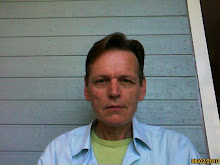By Parisa Hafezi
TEHRAN (Reuters) - Iran confirmed on Sunday it had allowed U.N. nuclear inspectors to visit a military complex as part of its efforts to counter U.S. accusations that it is secretly developing nuclear arms.
The United States believes Iran may have experimented with high explosives appropriate for atomic weapons at Parchin, 30 km (19 miles) southeast of Tehran.
Iran says it has no interest in such arms, only in civilian nuclear technology to generate electricity.
"We opened the doors of Parchin again to the inspectors. The site had been visited in the past," Foreign Ministry spokesman Hamid Reza Asefi told a weekly news conference.
Asefi denied Iran was conducting any nuclear weapons research there or anywhere else in Iran.
"Our nuclear activities are only for peaceful purposes. Our activities are based on the International Atomic Energy Agency's regulations," he said.
The IAEA's board of governors passed a tough resolution in September which brought Tehran to the brink of referral to the U.N. Security Council for possible sanctions.
"Since the resolution was passed, we said that Iran was ready to implement some parts of it," Asefi said.
As well as urging Iran to give better access and cooperation to U.N. inspectors, the IAEA's September resolution also called on Tehran to halt uranium processing work which it resumed at its Isfahan facility in August.
But Iran has refused to mothball the Isfahan plant and last week informed the IAEA of plans to start processing a fresh batch of uranium at the plant.
HOPE TO AVOID REFERRAL
Analysts said Iran's improved cooperation with the U.N. inspectors, noted by IAEA chief Mohamed ElBaradei last week, was designed to undermine U.S. and EU efforts to send its case to the Security Council at an IAEA board meeting later this month.
"They are doing everything to avoid referral to the council. Iran is not strong enough to withstand sanctions," said Hamid Pirzadeh, a political science professor at Tehran University.
Asefi also confirmed that Iran was in talks with Russia about the possibility of setting up joint nuclear fuel processing facilities.
Russian officials and Western diplomats who follow Iran's nuclear case closely have said allowing Iran to participate in Russian nuclear facilities, while halting nuclear fuel work at home, could be a face-saving measure to allow Iran and the EU to return to nuclear talks that broke down in August.
But Asefi hinted that Iran wanted the joint facilities to be located in Iran, something that is unlikely to be acceptable to Washington and the EU.
"We are open to talks about any plan and we are discussing with Russia where it should take place but we have told them that we will never abandon our right to the nuclear fuel cycle."
Iran's state radio reported on Saturday that the government had approved a bill that would allow foreign participation in Iran's uranium enrichment facilities.
President Mahmoud Ahmadinejad, in a speech to the U.N. General Assembly in September said Iran was prepared to allow other countries to participate in its nuclear programme as a guarantee that it would not develop nuclear weapons.
But Western diplomats say such a proposal does not address concerns that Iran could develop the know-how to make nuclear bombs under the cover of a civilian programme.
European Union foreign ministers will review the bloc's policy of engagement with Iran on Monday following Tehran's decision to resume its nuclear programme and Ahmadinejad's statement that Israel should "be wiped of the map".

No comments:
Post a Comment